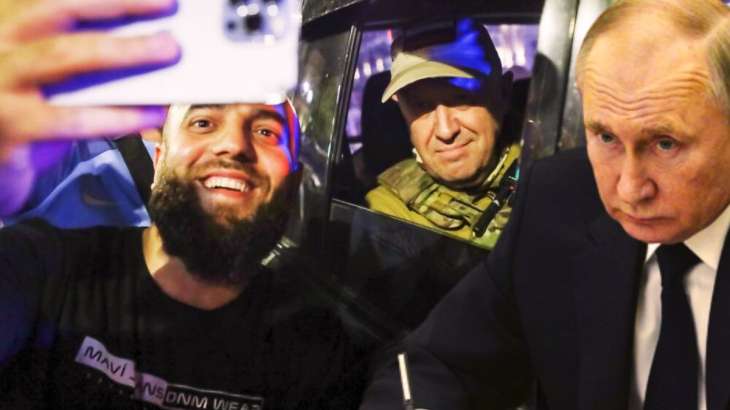
Wagner’s Rebellion: Russian government troops withdrew from the streets of Moscow and people gathered in parks and cafes on Sunday after a short-lived mutiny by mercenaries weakened President Vladimir Putin and raised questions over his ability to wage war in Ukraine . A march on the capital by Wagner troops led by Yevgeny Prigozhin and a late-night settlement eventually stopped this, causing serious damage to Putin’s reputation as a leader who brutally punished anyone who challenged his authority. ready to do.
It could open the door to those unhappy with Putin’s two-decade grip on power, especially after his ill-fated invasion of Ukraine. Under the terms of the agreement, Prigozhin would go into exile in Belarus but would not face prosecution and his army would not face trial. Neither Putin nor Prigozhin has reportedly heard from Belarus President Alexander Lukashenko since Saturday night’s announcement of the mediated settlement.
More cracks have emerged in the Russian side: Blinken
US Secretary of State Antony Blinken described the weekend’s events as “extraordinary”, recalling that 16 months ago Putin was poised to seize Ukraine’s capital and now had to defend Moscow from forces led by his one-time protégé. Have to do “I think we’ve seen more cracks emerge in the Russian side,” Blinken said on NBC’s Meet the Press.
“It’s too early to tell where they go and when they get there, but we certainly have all kinds of new questions that Putin will have to address in the weeks and months ahead.”
It was not yet clear what effect the cracks open by the 24-hour uprising would have on that war. But it resulted in the removal from the battlefield of some of the best forces fighting for Russia in Ukraine: Prigozhin’s own Wagner forces and the Chechen forces sent to intercept them.
But Ukrainians were hopeful and some analysts suggested Russian infighting could create opportunities for their army, which is in the early stages of a counteroffensive, to retake territory seized by Russian forces.
“These developments will be very comforting to the Ukrainian government and military,” said Ben Barry, senior fellow on land warfare at the International Institute for Strategic Studies.
What will happen to Prigozhin?
Another question is what will happen to the Wagner owned by Prigozhin in general. The military contractor has deployed troops in several countries believed to fight for Russian interests. Under the terms of the agreement, which halted Prigozhin’s progress, Wagner’s soldiers who did not support the rebellion would be offered contracts directly with the Russian army, placing them under the control of military officers whom Prigozhin were trying to get out.
Phillips O’Brien, professor of strategic studies at the University of St Andrews in Scotland, said the deal appeared to be a “hasty” arrangement designed to protect Prigozhin and protect his money and that of his family.
“We don’t know if he saved Wagner,” O’Brien wrote in his online newsletter. “It is not clear how many of his mercenaries are coming to Belarus with him, or how many will now be forced to sign contracts with the Russian military.” In their rapid advance, Prigozhin’s forces took control of two military centers in southern Russia on Saturday and came within 200 kilometers (120 mi) of Moscow before retreating.
All soldiers had left the city: Governor
In a scene that reflects Putin’s fears of a popular uprising, a video taken by The Associated Press in Rostov-on-Don on Saturday showed people cheering as Wagner troops leave. Some rushed to shake hands with Prigozhin, who was in an SUV.
The regional governor later said that all the troops had left the city. Russian news agencies also reported that Lipetsk authorities confirmed that Wagner’s forces had left the area, which lies on the road from Rostov to Moscow.
Russian soldiers armed with machine guns set up checkpoints
Moscow had prepared for the arrival of Wagner’s forces by building outposts with armored vehicles and troops on the southern edge of the city. Chechnya’s state television reported that about 3,000 Chechen soldiers were withdrawn from fighting in Ukraine and moved there early Saturday. Russian soldiers armed with machine guns set up checkpoints on the southern outskirts of Moscow.
Crews dug up parts of the highways to slow the march. “The deal is a short-term solution, not a long-term solution,” wrote the institute, which has tracked the war in Ukraine since its inception.
Prigozhin sought the removal of Defense Minister Sergei Shoigu, whom Prigozhin has long criticized for his conduct of the war in Ukraine.
US believes Prigozhin was building up his forces near the border
The US had intelligence that Prigozhin had been building up his army near the Russian border for some time. This contrasts with Prigozhin’s claim that his rebellion was a response to Friday’s attack by Russian forces on his camps in Ukraine.
Announcing the rebellion, Prigozhin accused the Russian military of targeting the Wagner camps in Ukraine with rockets, helicopter gunships and artillery. The Defense Ministry has denied an attack on the camps.
A possible motivation for Prigozhin’s mutiny was the Russian Defense Ministry’s demand, supported by Putin, that private companies sign contracts with it by 1 July. Prigozhin refused to do so.
(with inputs from the agency)